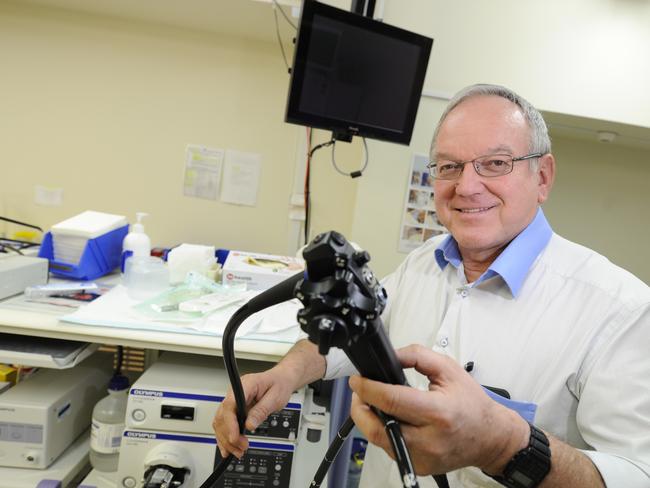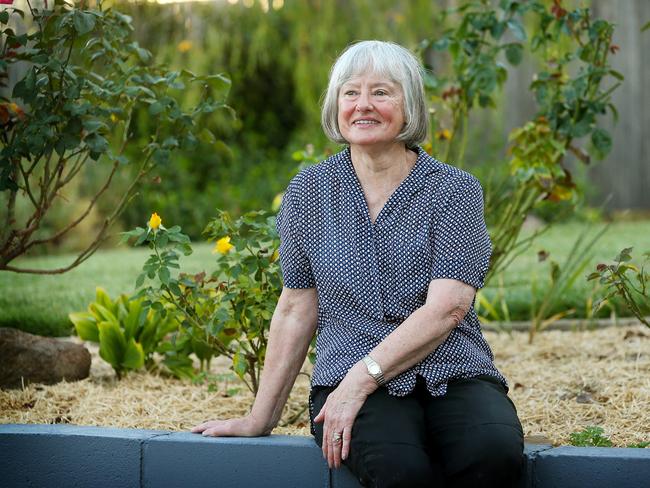How donating your poo could earn you $13,000 a year
POO transplants are the new frontier of medicine with claims they can help those with autism and obesity. With a national shortage, donors can now earn extra cash.
Health
Don't miss out on the headlines from Health. Followed categories will be added to My News.
EXCLUSIVE
It’s time to get your sh*t together if the mortgage and childcare bills are getting you down because financial relief could be just a bowel motion away.
Poo transplants and capsules which are being trialled to help medical conditions from autism, multiple sclerosis and chronic diarrhoea are now in such demand they have created a new market for healthy stools.
Your daily trip to the toilet has become brown gold and it can earn you up to $50 per deposit or up to $13,000 a year.
But, despite the financial incentive, the Centre for Digestive Disease (CDD) is short of donors.
Professor Thomas Borody says he need them to expand the number of Faecal Microbiota Transfers he performs each day.
Donors have to fill out a form, undergo a blood and three stool tests and be interviewed about their health. If found suitable, they can earn up to $200 a week donating their daily motion.
In Melbourne Dr Paul Froomes pays $50 per deposit or $250 per week for fecal donations.
If you want to donate you have to be normal weight and eat certain foods such as wholemeal bread and pasta, fresh vegetables, pulses and fruit and exclude corn, shellfish, prawns, oysters, salami, ham and sausages and antibiotics.

Donors are asked to take supplements to promote good bacteria in the bowel including apple pectin, Inulin and N-acetylglucosamine (N-A-G).
They must live within an hour or so of the Centre for Digestive Diseases at Five Dock and be prepared to defecate into a plastic container and make a daily delivery to the clinic within an hour or two of passing a motion.
Health worker Harriet says she’s earning $200 a week donating her stools after she saw the benefits fecal transplants had on two of her friends who suffered irritable bowel disease.
“I’m very regular, I start work at 7am and wake at 5.30am, have a coffee and I’m every morning like clockwork,” she says.
She says she drops her donation off on the way to work.
The 23 year old vegetarian says she feels blessed to have had it confirmed that she has good gut bacteria.
“I thought I’m healthy I’d like to help,” she says.
While she found the collection process weird to start with it no longer bothers her.
Laraine Culnane was diagnosed with tropical sprue after working for over a decade as an aid worker in Asia.
She had severe diarrhoea, terrible stomach cramps, no energy and had to eliminate gluten, diary and fructans from her diet but the problem got worse.
Multiple antibiotic treatments had reduced the good bacteria in her gut leaving her with an overgrowth of bad bacteria.
After a fecal transplant treatment and a dose of fecal capsules at the Centre for Digestive Diseases in 2017 and 2018 she says she’s almost back to normal.

“It is amazing, it has made a huge difference I’m now back skiing and walking where before I could barely make the bed,” she says.
Gut bacteria has become a new frontier in medicine with anecdotal reports that rheumatoid arthritis, alopecia, and even multiple sclerosis, Parkinson’s and autism after a faecal transplant.
One of Professor Borody’s overweight patients had a fecal transplant from a thin friend and lost 1 kilogram per week before ceasing treatment.
“There are about 100 trillion living cells in the tube called the human body with the brain at one end and your anus at the other end, and that bacteria sits there protecting you,” Professor Borody says.
“If you use antibiotics you damage them, if you consume an incoming bug on a food and it colonises and stays you can get problems,” he says.
The fecal “cures” have been made possible after bad bacteria is eliminated from the patients gut using antibiotics which is then repopulated with good bacteria from the fecal transplant.
Each fecal transplant enema costs $700.
Professor Borody has overseen more than 12,000 FMT processes at the CDD, and says he does on average 10 treatments per day.
“We could do more than double that if we had more donors,” he said.
